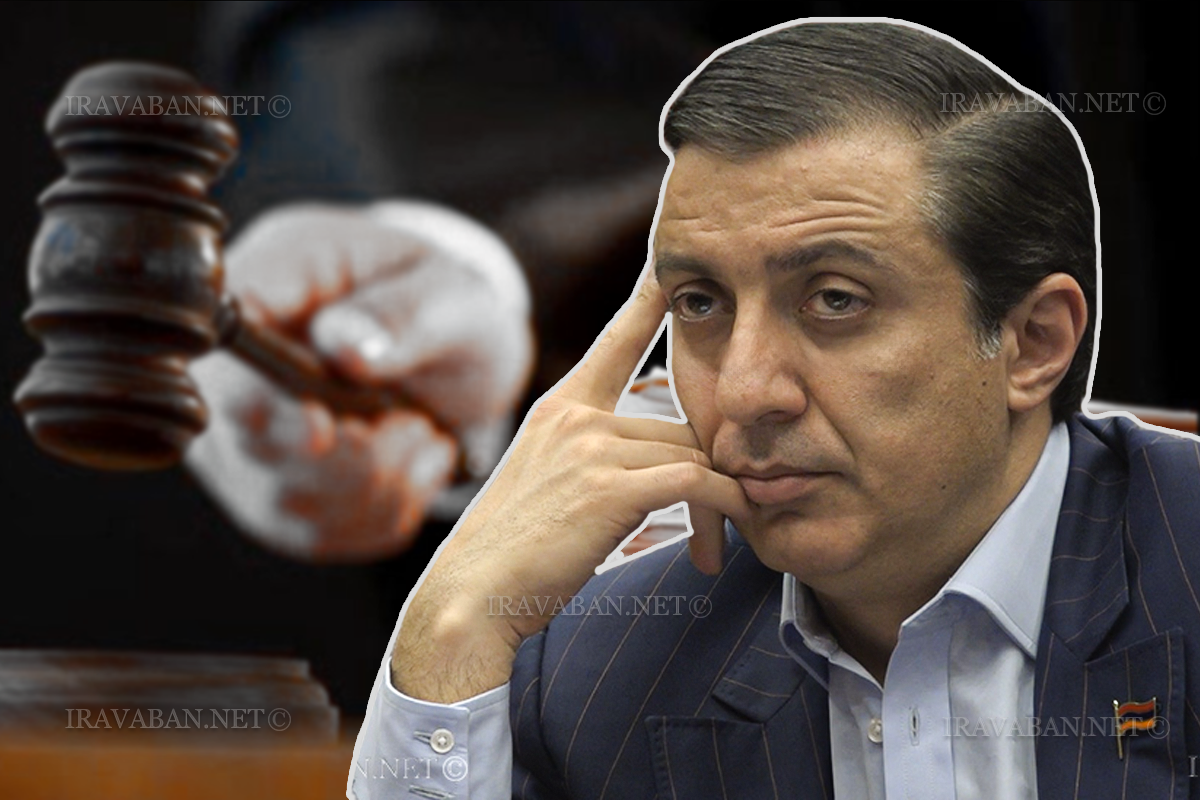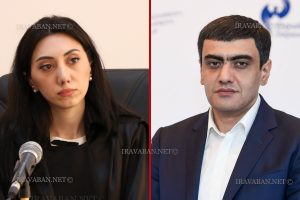Today, on April 9, the trial in the case of confiscation of allegedly illegally acquired property of former head of the Judicial Acts Compulsory Enforcement Service and former MP Mihran Poghosyan and 7 persons connected to him was held in the Anti-Corruption Civil Court, presided over by Judge Rudolf Avagyan.
It should be noted that at this and other hearings, the respondent’s representatives have completely objected to video recording of the session.
According to Iravaban.net, as the responding party had stated at the previous hearing, they were to present their objection-position regarding the submitted lawsuit at this hearing. Before that, the respondent’s representative Aram Orbelyan filed a motion to postpone the case, citing the circumstances related to the publication of the Constitutional Court’s decision on the law on confiscation of illegally acquired property.
We remind that on April 4, the Constitutional Court scheduled a trial on the case, but it is not known exactly when the court will return from the deliberation room.
The lawyer said that depending on the Constitutional Court’s decision, their position may change and new circumstances of essential importance for the case may emerge.
The Deputy Head of the Department for Confiscation of Illegally Acquired Property, Tigran Yenoqyan, said that the mentioned motion is not a basis for postponing the hearing, as the burden of proof has not yet been distributed, actions are being taken to clarify the basis and subject of the claim, and this does not hinder continuing the procedural process.
The court rejected the motion, and the hearing continued.
The objection-position brought by the respondents’ representatives consisted of several parts:
The absence of the prosecutor’s authority to submit a lawsuit Lawyer Arthur Hovhannisyan said that the exclusive authority to file a lawsuit for the protection of state interests should in no way include the power to file a lawsuit for the confiscation of illegally acquired property.
“We believe that by such a method, powers are artificially added to the prosecutor’s office, which do not derive from the Constitution. It is not possible to add powers under the article of a lawsuit for the protection of state interests by law and consider that the prosecutor’s office has that authority,” noted Hovhannisyan.
The Republic of Armenia not being an interested party in this case According to the lawyer, the basis for the position was the premise that the prosecutor’s claim in this case does not relate to state interests, and the demands brought in the lawsuit do not stem from the interests of the state.
Prohibition of retroactive application of the law According to the respondent’s side, the law adopted in 2020 should not have affected civil legal relations that arose before its adoption and should not serve as a basis for terminating property rights generated as a result.
He noted the following: “A person acquired property before 2020, for which the adopted law provided mechanisms for termination of ownership rights. This is a clear example of giving retroactive effect to a law that worsens a person’s legal status.”
The lawsuit being submitted in violation of legal procedures The respondent’s side challenged the legality of the decision to start the investigation, as well as the actions directed at it.
“Under the conditions of the initiated proceedings not complying with the law, being illegal, and the absence of prerequisites for starting an investigation, its results, in turn, could not serve as a basis for filing a lawsuit in court,” said Hovhannisyan, claiming that there was not sufficient grounds for the competent authority to conduct an investigation in the case.
The causal link between the anti-legal act attributed to the respondent and the allegedly illegal acquisition of property not being substantiated Hovhannisyan said that during the court hearings, the plaintiff stated that he does not see the need for a connection between any alleged crime and the confiscation of property, and does not consider it a prerequisite for initiating proceedings.
According to him, it follows from the legal position expressed by the ECHR that under conditions where this connection is not substantiated, the claim cannot be satisfied.
The motion also challenged the study period set by the competent authority, which was specified as 1996: “In 1996, Mihran Poghosyan did not hold any state position; the alleged acts attributed to him took place in 2008.”
Lawyer Aram Orbelyan, continuing his colleague’s speech, noted that there is no illegal balance of 465 million 627 thousand 637 drams in Mihran Poghosyan’s name, and the property of 6 billion drams mentioned in the lawsuit cannot be subject to confiscation at all, as it is legal and no transfer of illegal property of such volume has taken place.
“Mihran Poghosyan was engaged in entrepreneurial activities at a very early age before entering public service, after which when he entered state service, the acquired properties continued to provide income, during which his incomes were legal,” he noted.
Prosecutor Tigran Yenoqyan expressed his disagreement with the presented objections, asking questions to the respondent’s representatives within this framework.
The parties discussed the issue of involving a new person in the case, with the prosecutor saying that he needs to review the case materials, after which there may be a need to involve another person.
The hearing was postponed, with the next one to take place on May 7.
Mariam Shahnazaryan


















